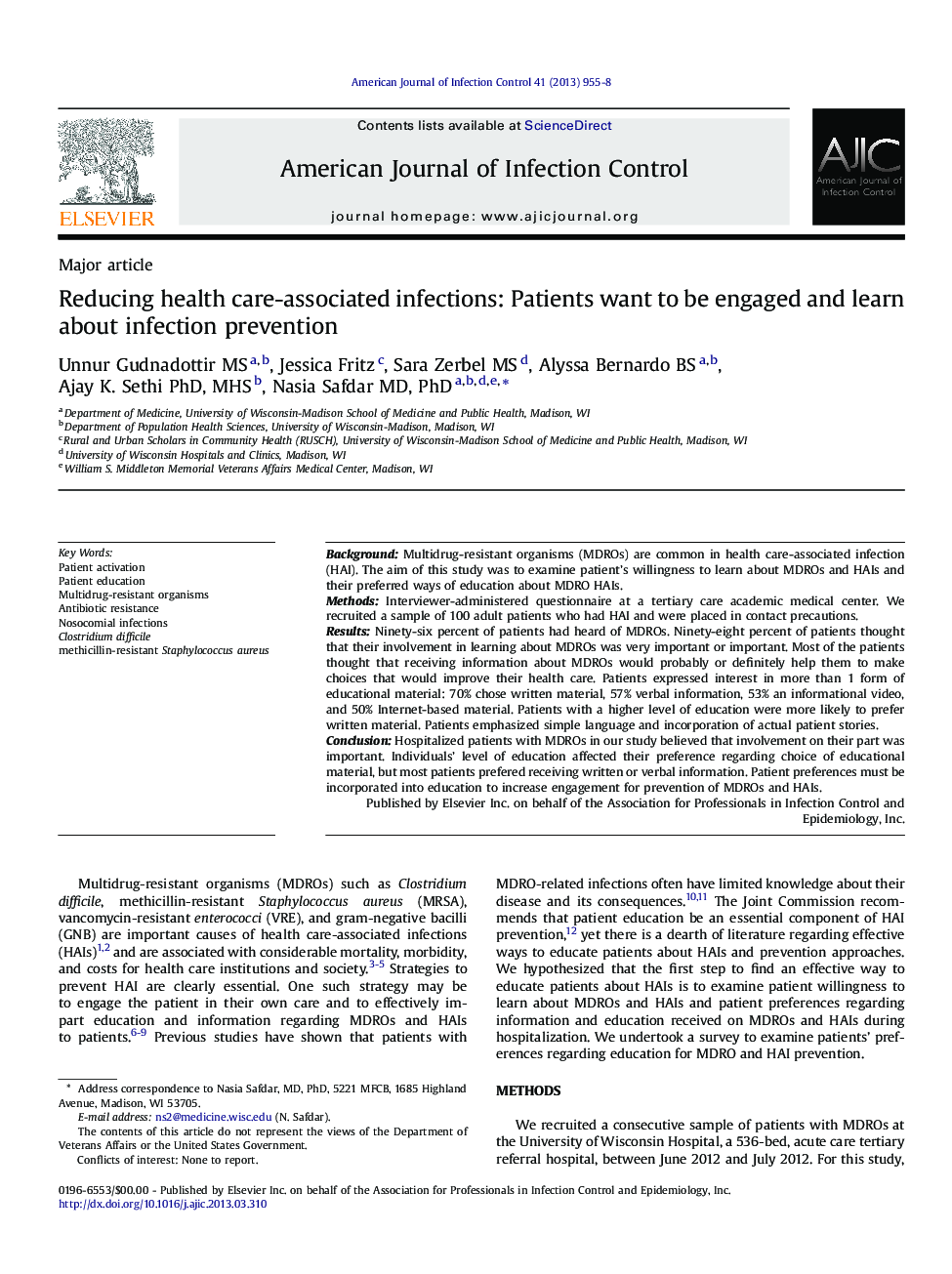| Article ID | Journal | Published Year | Pages | File Type |
|---|---|---|---|---|
| 2639534 | American Journal of Infection Control | 2013 | 4 Pages |
BackgroundMultidrug-resistant organisms (MDROs) are common in health care-associated infection (HAI). The aim of this study was to examine patient's willingness to learn about MDROs and HAIs and their preferred ways of education about MDRO HAIs.MethodsInterviewer-administered questionnaire at a tertiary care academic medical center. We recruited a sample of 100 adult patients who had HAI and were placed in contact precautions.ResultsNinety-six percent of patients had heard of MDROs. Ninety-eight percent of patients thought that their involvement in learning about MDROs was very important or important. Most of the patients thought that receiving information about MDROs would probably or definitely help them to make choices that would improve their health care. Patients expressed interest in more than 1 form of educational material: 70% chose written material, 57% verbal information, 53% an informational video, and 50% Internet-based material. Patients with a higher level of education were more likely to prefer written material. Patients emphasized simple language and incorporation of actual patient stories.ConclusionHospitalized patients with MDROs in our study believed that involvement on their part was important. Individuals' level of education affected their preference regarding choice of educational material, but most patients prefered receiving written or verbal information. Patient preferences must be incorporated into education to increase engagement for prevention of MDROs and HAIs.
